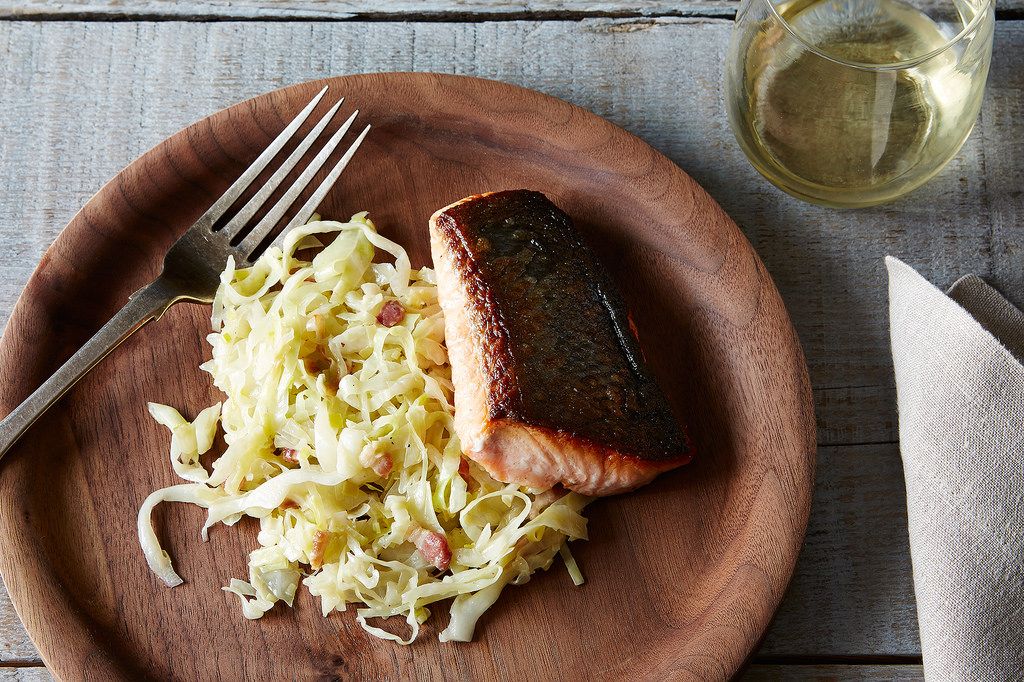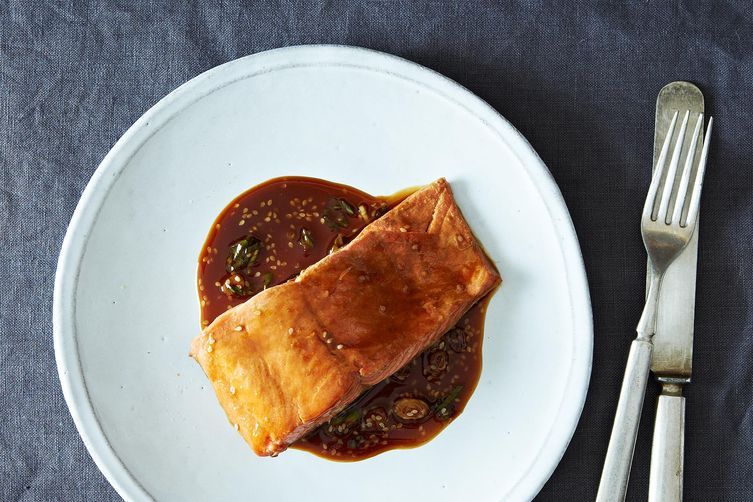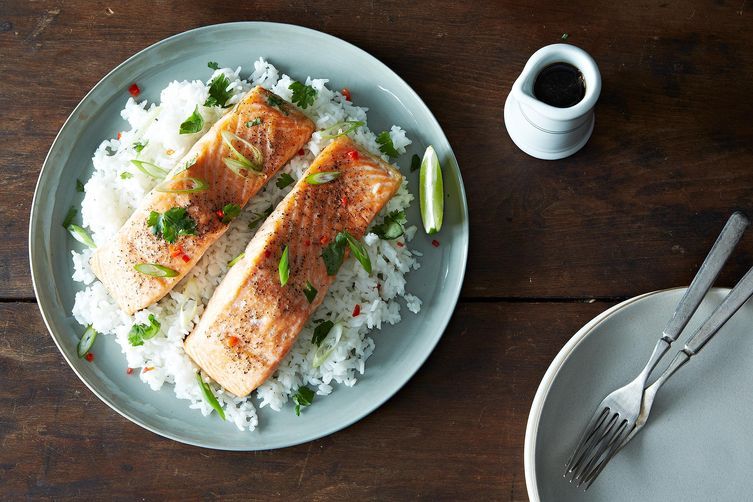Some questions on the Hotline have staying power, and for good reason -- they cover the questions we ask ourselves time and time again. Join us as we revisit some of the most popular.
Today: When things get fishy on the grill, don't get green around the gills, just follow these tips.
The idea of grilling often conjures up visions of heavier meats: burgers, hot dogs, steaks with perfect grill marks. But when you're in the mood for something lighter, there's nothing better than grilled salmon, paired with succotash or a bright tomato salad. Salmon can be cooked a number of ways -- poached, roasted, and smoked, to name a few -- but grilling this fish seems to bring out its best flavors.
Things can get a little fishy when it comes to grilling salmon, but over the years, the Food52 community has shared numerous helpful tips to keep you from feeling like a fish out of water.
Size Matters
- Calendargirl's rule of thumb for cooking time depends on the thickness of the salmon: "Allow 7 to 8 minutes per inch of thickness when cooking fish, virtually however you cook it. So whether you are grilling, pan-frying, or broiling, if your fish is an inch thick it should be done after 7 or 8 minutes. If you are grilling, you can turn it at about 4 minutes -- roughly halfway through."
- Note that there's a difference in grilling time between a salmon steak and a whole salmon. Monita cautions that a whole fish will take longer on the grill, up to 10 to 12 minutes per side.
More: Here's the best (and easiest!) way to grill a whole fish.
How You Like It
- No matter what grilling time you plan for, definitely don't let the clock be your only guide. Says pierino: "I tend toward the briefer time in cooking minutes, and the most basic suggestion is that 'it's done when it's done.' Keep an eye on it and don't burn it or dry it out."
- If you prefer rarer salmon, follow ATG117's advice: "I like my salmon fillets slightly undercooked in the center, so I pull mine out early, seal them in a foil packet, and allow them to steam for a few additional minutes."
- Whatever your preferred level of doneness, Jan Weber reminds us that the cooking process continues even after you take the salmon off the grill: "Keep in mind that most fish flesh is quite delicate, and as such will continue to cook even after you remove it from the grill...to avoid overcooking, remove from the heat a little bit before it is completely done, and then let the residual heat finish it off."
More: You'll need the right tools for the job. Check out Steven Raichlen's 10 Essential Grilling Tools.
Tips and Tricks
- You might not even need to flip the salmon if you follow Nancy Harmon Jenkin's tip: "I like to grill it on one side only, with the skin side next to the heat (i.e., on a barbecue, skin side-down; on a stove broiler, skin side-up) and cook till the skin is crisp and curling. At that point, the flesh underneath will be done just right."
- Melusine uses a thermometer rather than relying solely on timing, and prefers salmon cooked to 125 to 130° F (which is slightly lower than the USDA-recommended 145° F for fish).
In the end, it's important to enjoy the grilling process. "Have a glass of wine and relax," suggests chef of the future 2000.
Tell us: How do you grill your salmon?




See what other Food52 readers are saying.